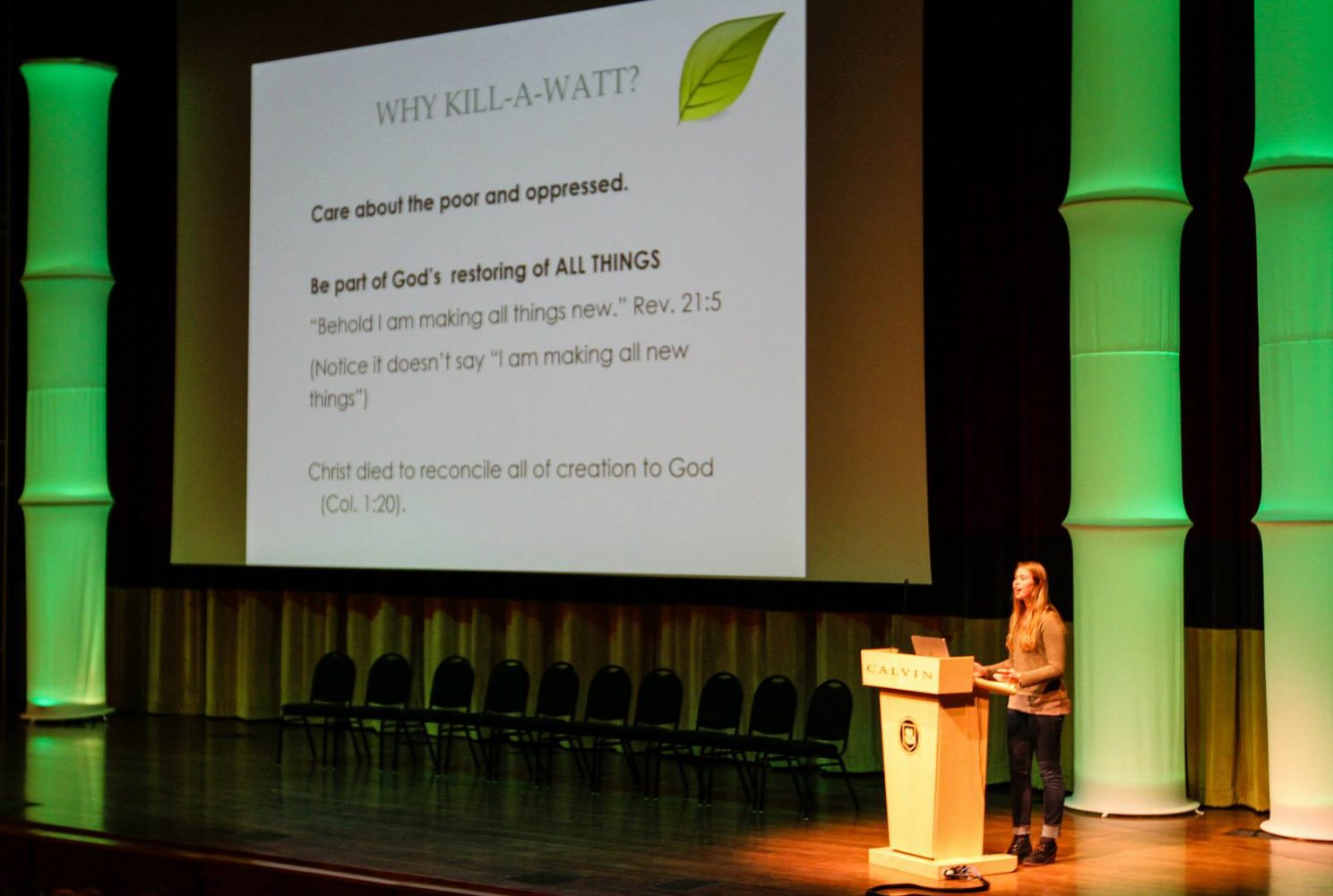Students across campus are shutting off their lights, unplugging their room fridges and turning down meat in the dining halls. Events and Bible studies promote sustainable living, and even staff and professors are getting involved. It is Kill-A-Watt again at Calvin, where the whole campus focuses on environmental awareness for a month.
For Becki Levad Simpson, associate dean of residence life, Kill-A-Watt is not just a dorm energy-saving competition–it’s about allowing students a chance to learn more about caring for creation.
Levad Simpson and works with sophomore sustainability coordinators to arrange events and coordinate the annual competition.
“We live in a culture where we all have more than we need and more choices than we need,” said Levad Simpson. “Part of Kill-A-Watt is about the energy implications of that, but there are also spiritual implications.”
President Le Roy gave an opening speech at the event kickoff on Jan. 12, after which Calvin Improv performed. He referenced studies that show repeating something for 21 days in a row helps develop it into a habit.
“We don’t expect people to commit to a lifetime,” Levad Simpson said. “We want to give people an opportunity to try something out. As you practice one of these [challenges] all Interim, it could very well become a habit.”
Each dorm competes throughout the month of January to gain the most points, which can be earned through attending events or participating in “lifestyle challenges.” Through the lifestyle challenges, students are encouraged to shower less than 20 minutes a week, go a month without emptying a trash can or refrain from using disposable bottled drinks.
Not all challenges may appear to be directly related to saving energy, but all focus on different aspects of increasing sustainability or reducing our energy footprint. For example, the vegan or vegetarian challenges reduce energy by prompting students to eat lower on the food chain, as Sustainability Coordinator Emily Cole explained.
“It takes a lot more to feed a cow than it does a chicken or, even less, a fish,” said Cole. “It also takes more gas and time to cook meat than it does vegetables.”
Levad Simpson does notice a decrease of energy use in the dorms, which is a positive effect of their efforts, but she says that’s not the main focus of the month. “It’s really about education, teaching and introducing the topic to a new group of students each year.”
“The goal is that there is a long-term benefit for the students and the world as they move out and live other places,” said Levad Simpson. “Hopefully they will continue to practice some of these habits. It does save energy for the world and for Calvin, but I think the hope is that it would also be something that can bear spiritual fruit.”
Upcoming events in the Kill-A-Watt spirit include a Kill-A-Watt chapel on Jan. 22 and a DIY night hosted by Nite Life on Jan. 24, when students can learn to make “green” shampoo and detergent.








